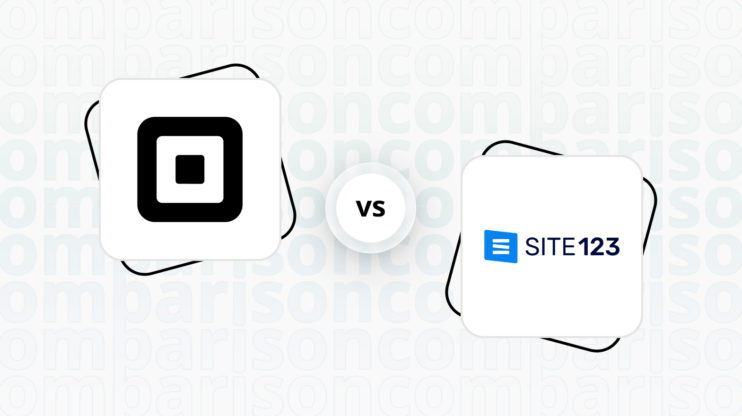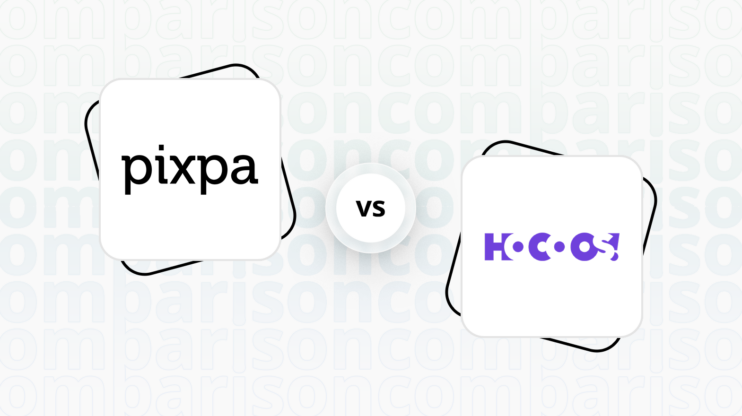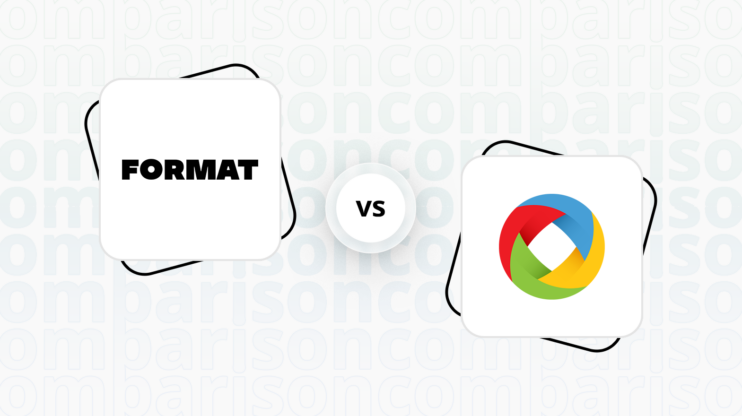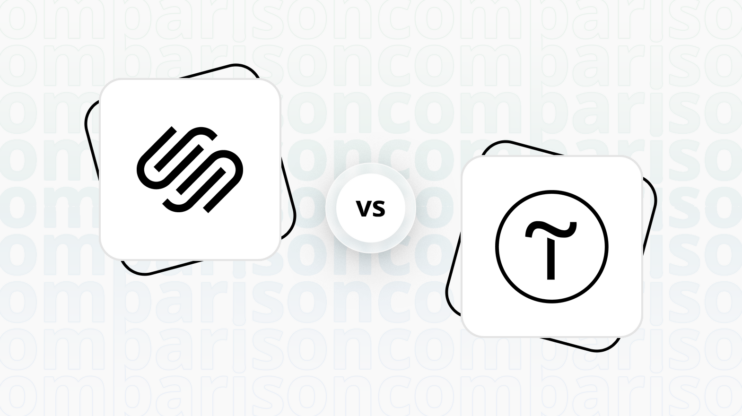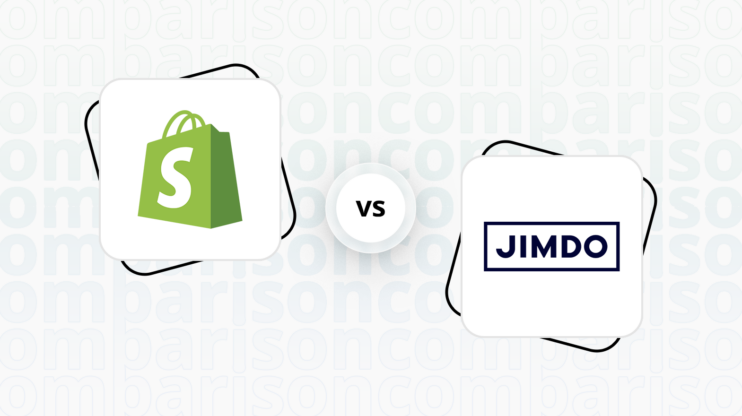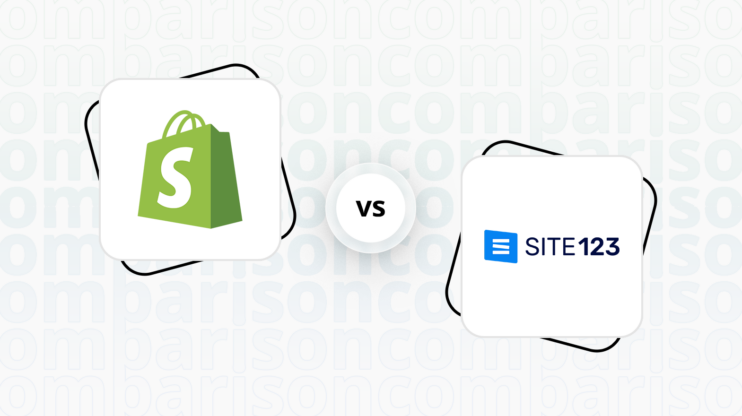Final verdict
GoDaddy and Webnode both offer valuable website building solutions, but they cater to different user needs and preferences.
-
GoDaddy (Overall Grade: 7.5/10)
is a comprehensive platform that excels in providing a wide range of services, including domain registration, web hosting, and a user-friendly website builder. It is particularly strong in ecommerce features, marketing tools, and customer support, making it a solid choice for businesses looking for an all-in-one solution. When comparing GoDaddy vs Webnode, GoDaddy stands out for its extensive template collection, ease of use, and robust hosting quality. -
Webnode (Overall Grade: 6.5/10)
is a user-friendly website builder ideal for beginners and those looking to create simple websites quickly. It offers a drag-and-drop interface, customizable templates, and basic ecommerce capabilities. While it may not match GoDaddy in terms of advanced features and integrations, Webnode is a good option for individuals and small businesses seeking an easy-to-use platform with essential functionalities. In the GoDaddy vs Webnode comparison, Webnode is praised for its simplicity and accessibility.

|

|
|
|---|---|---|
|
Design functionalities & templates |
8.0 |
7.1 |
|
Ease of use |
8.2 |
8.0 |
|
Ecommerce |
7.2 |
6.3 |
|
Website Editors |
6.7 |
7.3 |
|
Product testing options |
8.1 |
5.3 |
|
Price |
7.9 |
7.7 |
|
Hosting quality |
7.8 |
6.3 |
|
Website speed optimization |
7.6 |
6.1 |
|
Plugins and integrations |
7.3 |
6.8 |
|
Marketing features |
7.3 |
5.5 |
|
Customer support |
8.5 |
5.3 |
|
Security |
6.8 |
7.7 |
|
AI capabilities |
7.5 |
5.3 |
|
User Management |
7.3 |
6.9 |
Best for ecommerce
 7.2
7.2
 6.3
6.3
Verdict
: GoDaddy is better suited for those looking for a more comprehensive ecommerce solution with advanced marketing tools, while Webnode is ideal for beginners who need a simple and quick setup.
-
GoDaddy
: Known for its user-friendly experience, GoDaddy offers a range of ecommerce features such as integrated payment processing, flexible shipping options, and comprehensive tools for product and order management. It also excels in marketing tools, making it a robust choice for growing businesses. However, when comparing GoDaddy vs Webnode, GoDaddy’s themes may lack the cutting-edge designs found on dedicated ecommerce platforms. -
Webnode
: With its drag-and-drop interface, Webnode is perfect for beginners who want to create a simple online store quickly. It offers basic ecommerce features like product management tools, various payment options, and basic analytics. However, it may fall short for more complex ecommerce needs and lacks in-depth marketing tools compared to GoDaddy.
Best for informational & business websites
 7.9
7.9
 7.2
7.2
Verdict
: GoDaddy is the better choice for informational business websites due to its extensive design functionalities, ease of use, and superior hosting quality. Webnode, while user-friendly and secure, falls short in comparison to GoDaddy’s comprehensive offerings.
-
GoDaddy
: GoDaddy scores 7.9 for informational business websites, making it a strong contender. It offers a wide array of design features and an extensive collection of templates, catering to diverse industries and design preferences. The platform is user-friendly, with a drag-and-drop interface and mobile-responsive templates, making it accessible for beginners. Additionally, GoDaddy’s robust hosting quality and comprehensive website speed optimization strategies ensure reliable performance and fast load times, essential for maintaining a professional online presence. -
Webnode
: Webnode scores 7.2, making it a good option for beginners who want to create a simple website quickly and easily. It offers a variety of customizable and responsive templates, ensuring that websites display well on any device. Webnode’s drag-and-drop interface and multilingual support make it easy to create professional-looking websites without coding skills. However, it lacks the extensive design functionalities and hosting quality that GoDaddy provides, making it less suitable for more complex informational business websites.
Detailed comparison
Design functionalities & templates
Design FunctionalitiesRepresents how well each platform allows for creative design and customization of websites.Score Components:
- Template Variety (30%): Range and quality of design templates.
- Customization (30%): Flexibility and options for design alterations.
- User Interface (20%): Ease and intuitiveness of the design process.
- Responsiveness (10%): Adaptability to different devices and screen sizes.
- Innovation (10%): Unique design features and tools.
 8.0
8.0
 7.1
7.1
🏆
Winner: GoDaddy.
If you’re looking for a platform that offers more creative control, a wide array of design features, and an extensive collection of templates, GoDaddy is the preferred choice.
GoDaddy provides an extensive collection of over 1500 website templates catering to diverse industries and design preferences. These templates cover business, ecommerce, creative, personal, and non-profit sectors, offering various styles such as modern, classic, bold, minimalist, and content-focused. With customization options, mobile responsiveness, and a combination of free and premium templates, GoDaddy aims to meet the needs of users seeking versatile and visually appealing website designs.
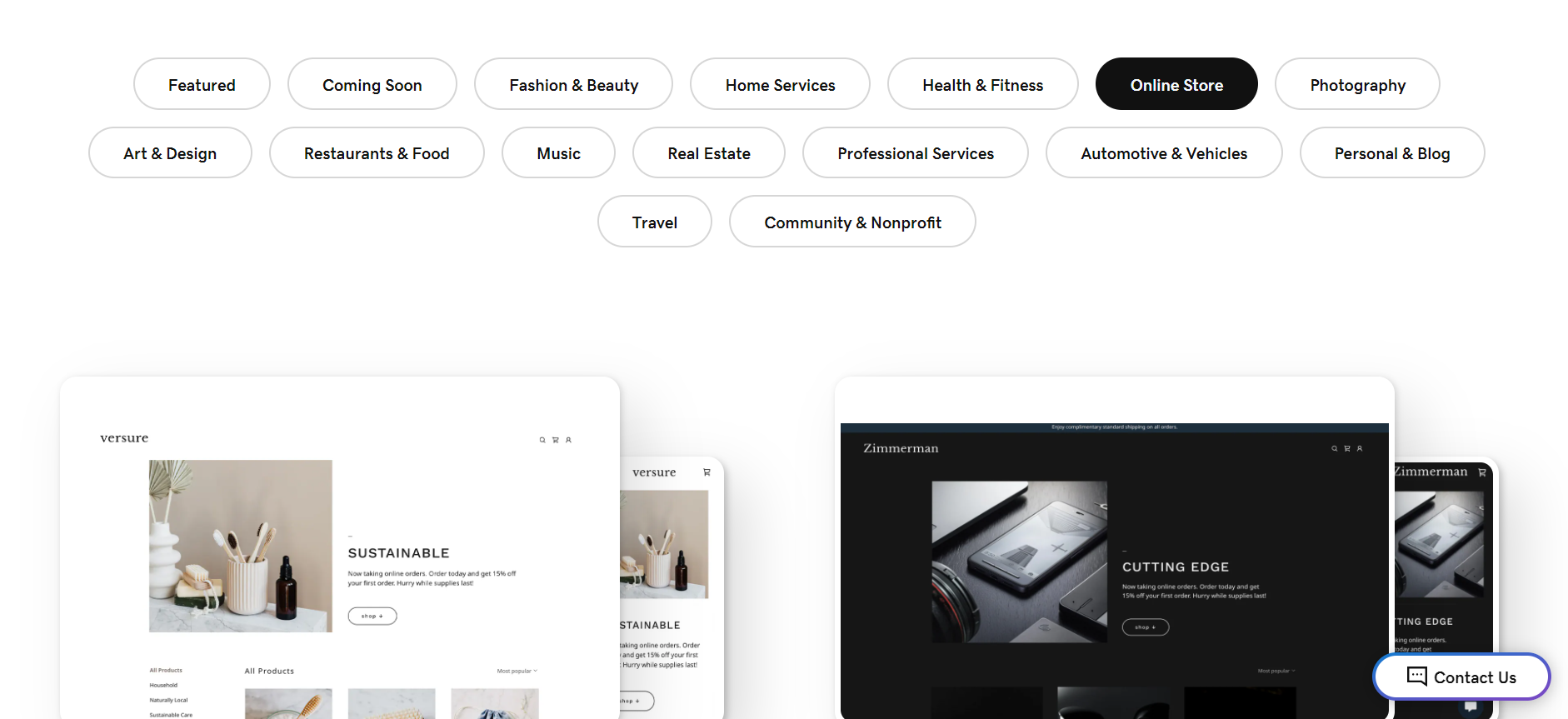

Compared to GoDaddy, Webnode offers a variety of website templates designed for different purposes, from business and portfolios to restaurants and travel. These templates are customizable and responsive, ensuring they display well on any device. While an exact number isn’t available, Webnode provides a wide selection to cater to diverse website needs.
Get a head start on website creation with AI
Create a custom website tailored to your business needs 10X faster with 10Web AI Website Builder!
Ease of use
Ease of useReflects the platform’s overall user-friendliness.Score
Components:
- Learning curve (40%): Quickness and ease of getting started.
- Interface design (30%): Simplicity and intuitiveness of layout.
- User guidance (20%): Quality of tutorials and support.
- Flexibility (10%): Adaptability to various user skills.
 8.2
8.2
 8.0
8.0
🏆 Winner: GoDaddy
. Scoring 8.2, GoDaddy edges out Webnode, which scored 8.0, in terms of ease of use. GoDaddy’s user-friendly platform, particularly its website builder, is popular among beginners due to features like a drag-and-drop interface, WYSIWYG editor, and mobile-responsive templates.
Learning Resources
🏆 Winner: GoDaddy
. GoDaddy offers a range of learning resources tailored to different services, with a comprehensive set for the website builder, including online documentation, video tutorials, community forums, and live sessions. Webnode, on the other hand, lacks a large community of users across various platforms.
For ecommerce
EcommerceMeasures the platform’s effectiveness in supporting online business activities.Score Components:
- Ecommerce themes and templates (20%): Variety and design of templates.
- Product management (25%): Ease of managing and organizing products.
- Payment options (25%): Variety and convenience of payment methods.
- Ecommerce features (20%): Features for managing an ecommerce store.
- Integration (10%): Compatibility with external e-commerce tools and services.
 7.2
7.2
 6.3
6.3
GoDaddy and Webnode both offer ecommerce capabilities, but they cater to different needs and scales of online businesses. GoDaddy’s ecommerce features provide a user-friendly experience for setting up and managing online stores, with integrated payment processing, flexible shipping options, and comprehensive tools for product and order management. On the other hand, Webnode’s ecommerce features are more basic, with an online store builder, product management tools, various payment options, and basic analytics.

|

|
|
|---|---|---|
|
Ecommerce themes and templates |
6.5 |
6.5 |
|
Product page customization |
6.0 |
7.0 |
|
Payment processing and commissions |
7.5 |
6.8 |
|
POS capabilities |
6.0 |
4.0 |
|
Payment gateways |
7.0 |
7.0 |
|
Product numbers |
7.0 |
5.5 |
|
Additional ecommerce features |
6.5 |
6.0 |
GoDaddy ecommerce features:
- Payment processing
- Shipping options
- SEO tools
- Email marketing features
- Social media integrations
- Detailed reports
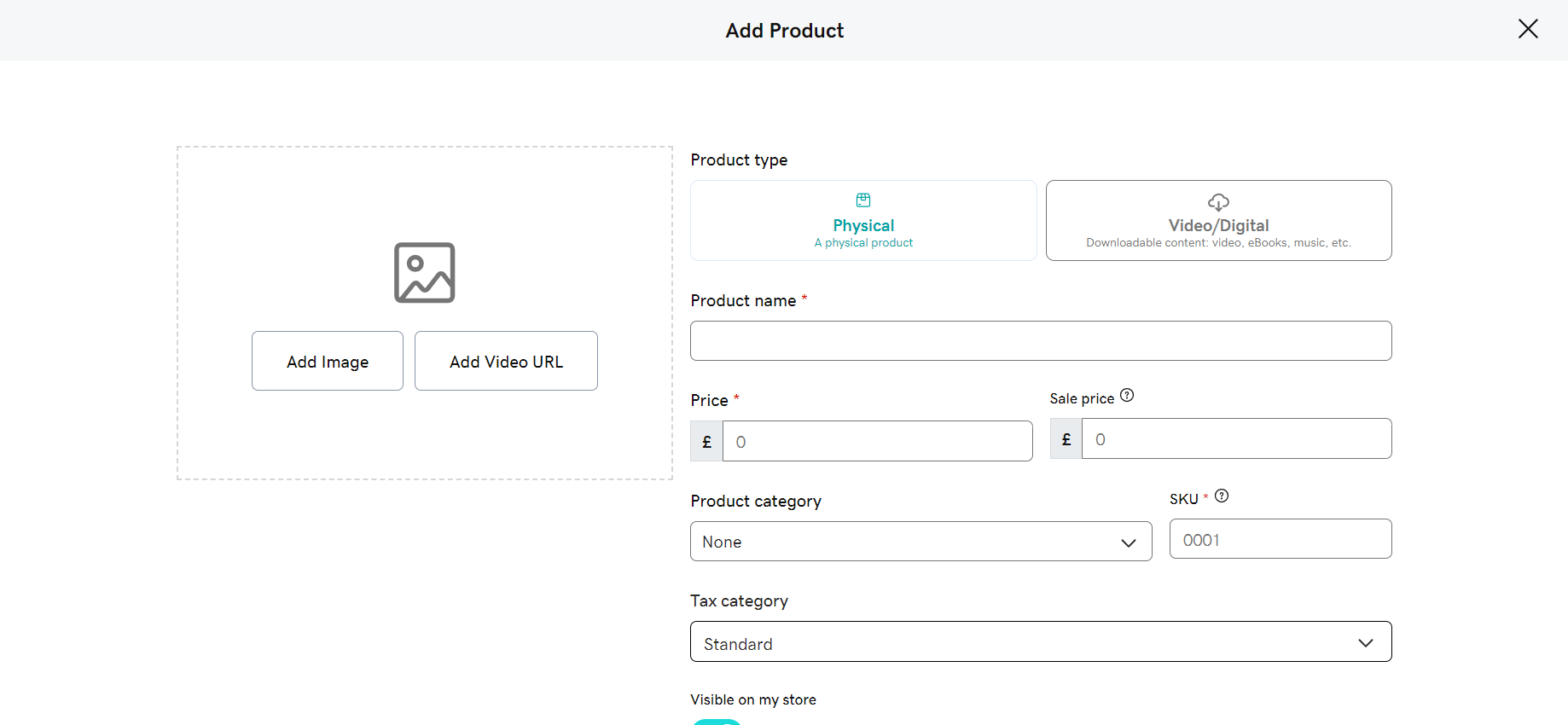
Webnode ecommerce features:
- Shipping options
- Payment gateway integrations
- Order management
- Coupons and discounts
Ecommerce themes & templates
GoDaddy offers around 70-80 ecommerce themes that cover diverse industries and styles. While generally mobile-friendly with basic customization options, these themes may lack the niche variety and cutting-edge designs found on dedicated ecommerce platforms. Webnode, on the other hand, offers ecommerce-specific templates designed for creating online stores. These templates typically come with features such as product showcasing, shopping cart functionality, support for various payment gateways, and customization options.
Product page customization
GoDaddy’s ecommerce platform offers users basic customization options like editing content, adding images, and adjusting layouts. For advanced customization, coding knowledge is required. Webnode provides users with extensive customization options for product pages, allowing for the creation of visually appealing and informative displays.
Payment processing
GoDaddy Payments provides a versatile solution for online, in-person, and phone payments with a tiered pricing structure. Webnode website builder supports various payment gateways, including popular options like PayPal and Stripe, for online transactions. While Webnode itself doesn’t charge commissions on transactions, payment gateways may have their own fee structures.
Website Editors
Website EditorsEvaluates the platforms’ website building and editing capabilities.Score Components:
- Customization tools (40%): Range and power of editing features.
- Editor usability (30%): User experience within the editor.
- Design flexibility (20%): Freedom in layout and design changes.
- Update and maintenance ease (10%): Simplicity of updating and maintaining the site.
 6.7
6.7
 7.3
7.3
🏆
Winner: Webnode
. With a score of 7.3, Webnode’s website builder features a user-friendly drag-and-drop interface with customizable templates, enabling users to easily create professional-looking websites without coding skills. The editor offers responsive design capabilities and multilingual support, catering to diverse audiences across different devices and languages. Built-in features such as SEO tools, e-commerce functionality, and analytics integration empower users to optimize their websites for search engines, sell products online, and track performance metrics effectively.
GoDaddy’s Editor, scoring 6.7, is a user-friendly drag-and-drop tool enabling website creation without coding. It offers pre-designed templates, a mobile-friendly interface, basic SEO tools, and ecommerce integration, making it accessible for beginners, with affordable pricing plans and an all-in-one solution. However, it has some design limitations, basic features compared to dedicated platforms, a learning curve for extensive use, and potentially limited third-party app integrations.
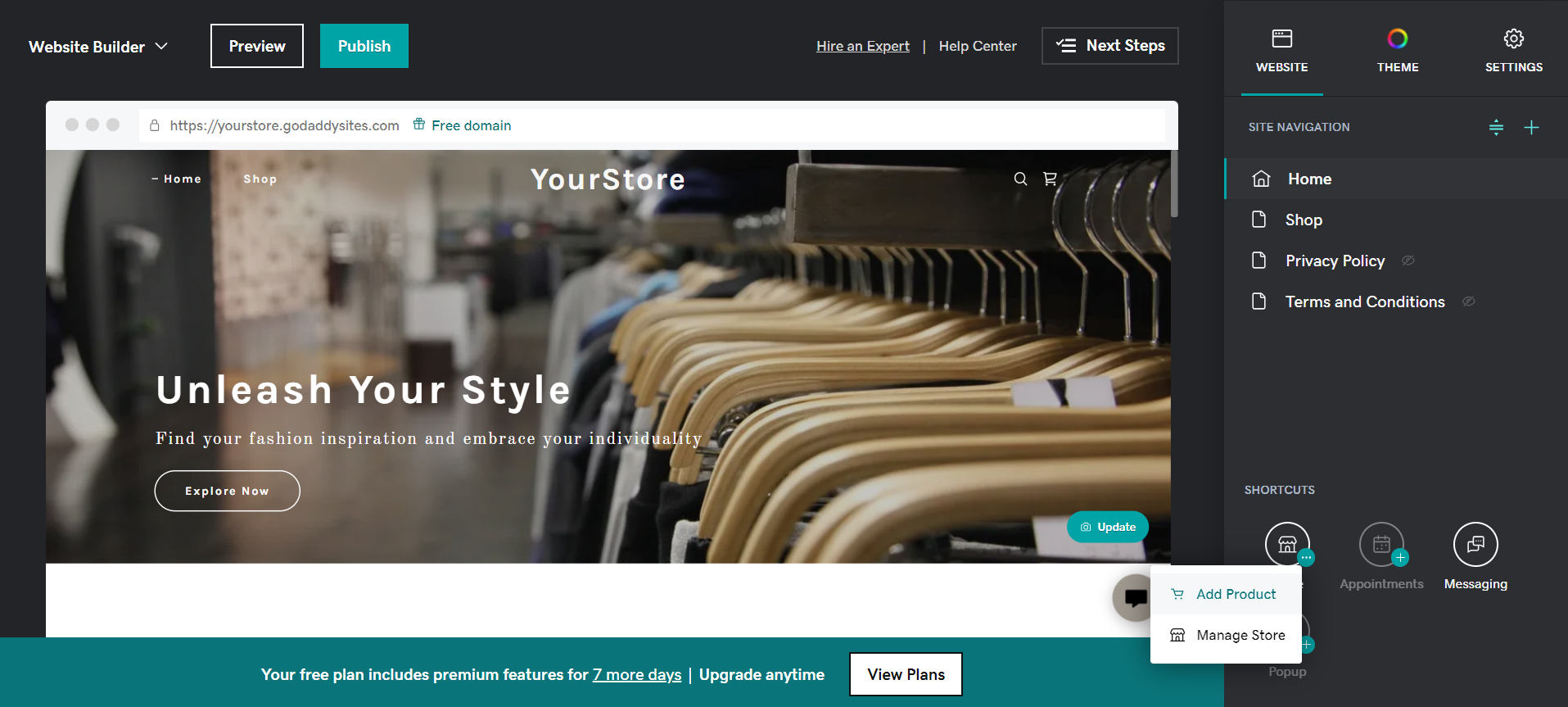
Mobile editor/app
 5.5
5.5
 5.5
5.5
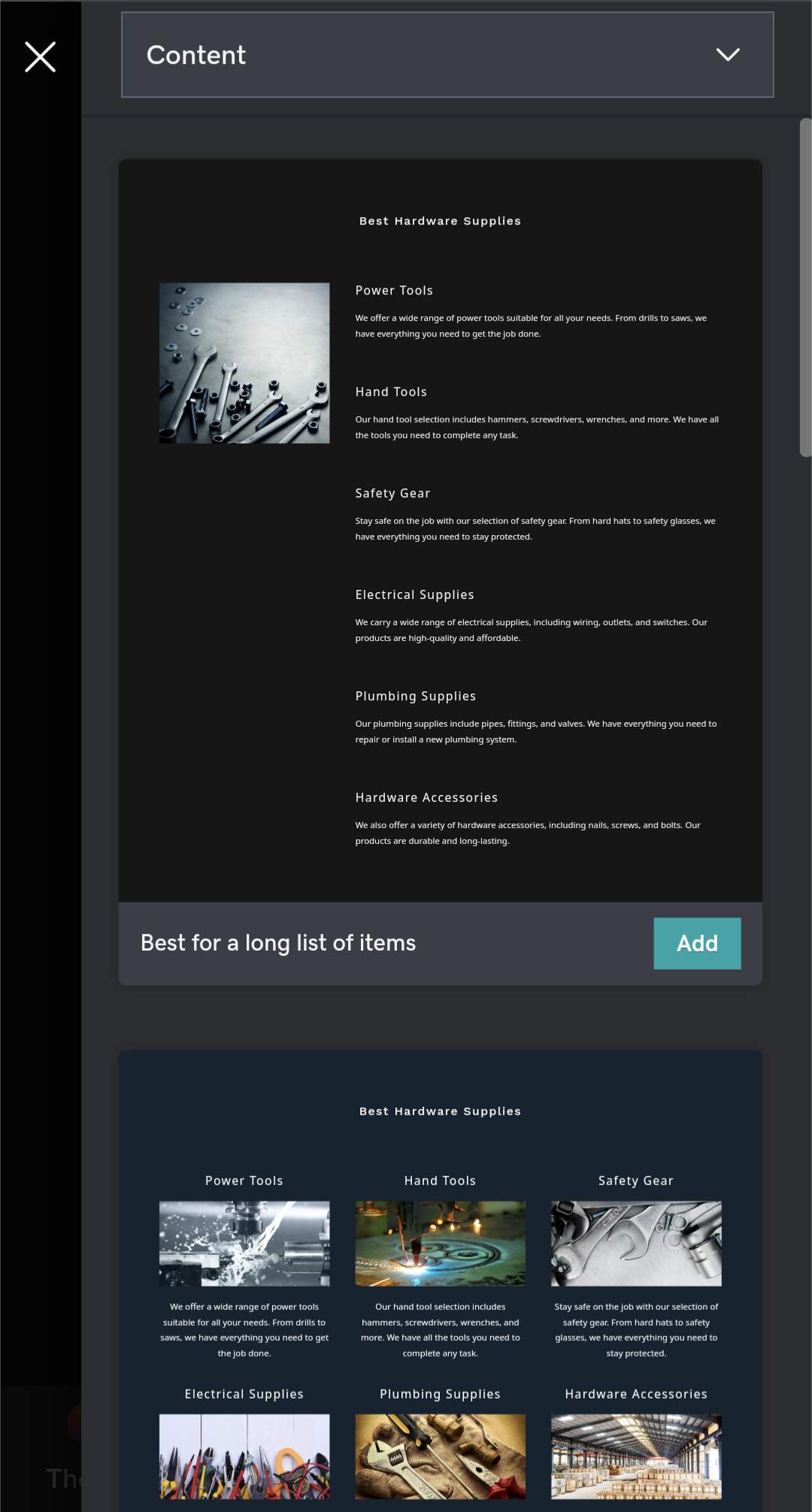

🏆
Draw: GoDaddy vs Webnode
. Both GoDaddy and Webnode do not offer a dedicated mobile app for editing websites. However, they allow users to access their website builders through a mobile web browser. This means that you can make changes to your website on the go, although the experience might be slightly more constrained on a smaller screen. Given that both platforms have the same score for their mobile editor, it’s safe to say that they offer similar capabilities in this aspect.
GoDaddy, on the other hand, excels in general website editing through its mobile app. It provides a user-friendly, drag-and-drop interface, allowing users to edit various aspects of their website, including content, design, layout, and blog management. The app is particularly beginner-friendly, making it easy for users with no prior website building experience.
In summary, GoDaddy and Webnode receive a similar rating due to their versatility in general website editing and a more beginner-friendly interface, while both are strong in ecommerce management but may be better suited for users with some experience.
Product testing options
Product Testing OptionsAssesses the options for trying out platform features before commitment.Score Components:
- Trial quality (40%): Extent and usefulness of the trial or free version.
- Feature accessibility (30%): How many features are available to test.
- Trial duration (20%): Length of the trial period.
- Ease of transition (10%): Smoothness of moving from trial to paid plans.
 8.1
8.1
 5.3
5.3
Overall Result
:
GoDaddy Wins
. GoDaddy scores 8.1 in product testing options, significantly higher than Webnode’s 5.3. GoDaddy offers a free version and a 30-day money-back guarantee for all paid plans, allowing users to explore all features and get a full refund if not satisfied. Webnode also offers a free version but doesn’t provide a trial version. It only allows testing of some features with the free plan and offers a shorter 15-day money-back guarantee.

|

|
|
|---|---|---|
|
Free Plan |
Yes | Yes |
|
Trial Duration |
No (30-day money-back guarantee) | No |
|
Testing Premium Features |
Full refund within 30 days if not satisfied |
Some features can be tested with the free plan |
|
Money Back Guarantee |
30 days |
15 days |
Price
PriceLooks at the cost-effectiveness and value for money of each platform.Score Components:
- Plan value (40%): What each pricing tier offers.
- Transparency and clarity (30%): Clearness of pricing structures.
- Flexibility of plans (20%): Range of options to suit different budgets.
- Hidden costs (10%): Additional expenses not included in the plan.
 7.9
7.9
 7.7
7.7
GoDaddy and Webnode have similar price scores, with GoDaddy slightly ahead. GoDaddy offers a wider range of plans, including an enterprise plan for larger organizations with advanced requirements. On the other hand, Webnode does not offer an enterprise plan.

|

|
|
|---|---|---|
|
Free |
Free ($0/month): Build a basic website with limited templates, storage, and features. Ideal for testing the platform. |
No offering at this amount. |
|
$0-$8 |
Basic ($5.99/month): More templates, custom domain support, email marketing, SEO tools, social media integrations, analytics. Ideal for personal websites and small businesses. Value for price: 6.5 |
LIMITED ($5.50/month): Basic plan, 200 MB storage, attach domain, website statistics, up to 5 form fields, last 30 days backup. This plan allows to manage 1 website with unlimited number of pages. Value for price: 3.0 |
|
$8-$15 |
Premium ($9.99/month): All Basic features + blog, ecommerce with product listings and payments, advanced marketing tools, and analytics. Ideal for businesses with online sales or growing web presence. Value for price: 8.0 |
MINI ($10.00/month): All essentials for a simple website, 1 GB storage, 3 GB bandwidth, website statistics, 1 email account. This plan allows to manage 1 website with unlimited number of pages. Value for price: 4.5 |
|
$10-$18 |
Commerce ($15.99/month): All Premium features + advanced ecommerce tools like cart recovery, discounts, reviews, memberships, and unlimited products. Ideal for businesses with significant online sales and complex product offerings. Value for price: 9.0 |
STANDARD ($16.90/month): For starting an online store, 3 GB storage, 10 GB bandwidth, 20 email accounts, basic store features. This plan allows to manage 1 website with unlimited number of pages. Value for price: 6.0 |
|
$18-$30 |
Pro ($19.99/month): All Commerce features + priority support, higher bandwidth, website security, and CDN. Ideal for businesses with high traffic and critical online presence. Value for price: 9.5 |
PROFI ($26.50/month): Professional websites, 7 GB storage, unlimited bandwidth, 100 email accounts, full online store capabilities. This plan allows to manage 1 website with unlimited number of pages. Value for price: 7.5 |
|
$30+ |
No offering at this amount. |
BUSINESS ($34.90/month): Comprehensive e-commerce, 15 GB storage, unlimited bandwidth, 1000 email accounts, advanced online store features. This plan allows to manage 1 website with unlimited number of pages. Value for Price: 8.5 |
location. As a result in rare cases the prices displayed here can differ from the ones you see on their
websites.
Hosting quality
Hosting
qualityExamines the reliability and performance of the hosting solutions.Score Components:
- Uptime (40%): Consistency and reliability of website availability.
- Speed (30%): Loading times and performance.
- Bandwidth and storage (20%): Sufficiency of resources provided.
- Data centers (10%): Quality and distribution of hosting infrastructure.
 7.8
7.8
 6.3
6.3
🏆
Winner: GoDaddy
GoDaddy offers a range of hosting types, including shared, VPS, dedicated, and WordPress hosting. It also guarantees an uptime of 99.9% and has data centers in the USA, France, Germany, and the UK. On the other hand, Webnode does not disclose its hosting type or the locations of its data centers, and it does not offer an uptime guarantee. Therefore, GoDaddy is the clear winner in terms of hosting quality.

|

|
|
|---|---|---|
|
Do they offer hosting? |
Yes, included in all of their plans |
Yes, included in all of their plans |
|
Data Centers: |
Data Centers in USA, France, Germany and UK Cloud Services Through AWS |
Webnode does not disclose the locations of its data centers |
|
Type of hosting: |
Shared Hosting, VPS Hosting, Dedicated, WordPress Hosting |
Webnode does not disclose its hosting type |
|
Uptime: |
99.9% |
99.6% |
|
Uptime Guarantee: |
Yes, 99.9% |
No |
Website Speed Optimization
Website Speed OptimizationEvaluates optimization of website loading timesScore Components:
- PageSpeed Score (30%): Google’s score indicating performance optimization.
- Loading Time (30%): The average time until a website is fully interactive.
- Mobile Optimization (15%): Optimization effectiveness for mobile devices.
- Resource Optimization (15%): Optimizing images, scripts, and other heavy resources.
- CDN Usage (10%): Use of CDN to enhance speed across geolocations.
 7.6
7.6
 6.1
6.1
🏆 Winner: GoDaddy
Both GoDaddy and Webnode have strategies in place for website speed optimization, but GoDaddy’s comprehensive approach and transparency about their improvements give them the edge.

|

|
|
|---|---|---|
|
Focus |
CDN, Automatic Maintenance, Resource Optimization |
Code Minification, Image Optimization, Caching |
|
Performance Tools |
Not specified |
Not specified |
|
Key Strategies |
CDN, Automatic Maintenance, Resource Optimization |
Code Minification, Image Optimization, Caching |
|
Load Times |
Shared Hosting: 2-4 seconds, VPS Hosting: 1-2 seconds, Dedicated Server: 0.5-1.5 seconds |
Varies depending on optimization |
|
Page Speed Scores Range |
Shared Hosting: 50-70/100, VPS Hosting: 70-85/100, Dedicated Server: 80-95/100 |
Not specified |
|
Core Web Vitals Improvement |
Infrastructure upgrades, improved server infrastructure and data centers, effective caching mechanisms, image optimization tools, automatic minification of code files, optimized templates and code structures for efficient rendering |
Not specified |
GoDaddy has a comprehensive approach to website speed optimization, including the use of a Content Delivery Network (CDN), automatic maintenance, and resource optimization. They have also made significant infrastructure upgrades, including improved server infrastructure and data centers, which result in faster loading times. Additionally, GoDaddy has implemented effective caching mechanisms, image optimization tools, and automatic minification of code files, which contribute to a smoother user experience and improved Core Web Vital metrics. Their website builder features optimized templates and code structures for efficient rendering, further enhancing overall performance.
Webnode, on the other hand, focuses on code minification, image optimization, and caching for website speed optimization. However, they do not provide any specific information about their Core Web Vital improvements or their PageSpeed score ranges, making it difficult to assess their performance in these areas. Their load times also vary depending on optimization, which suggests that the performance may not be consistent across different websites.
Get a head start on website creation with AI
Create a custom website tailored to your business needs 10X faster with 10Web AI Website Builder!
Plugins and integrations
Plugins and integrationsMeasures the range and effectiveness of additional plugins and integrations.Score Components:
- Variety of options (40%): Range of available add-ons.
- Integration smoothness (30%): Ease of integrating plugins into the site.
- Quality of plugins (20%): Functionality and reliability of the options.
- Custom integration capabilities (10%): Support for custom or third-party integrations.
 7.3
7.3
 6.8
6.8
🏆 Winner: GoDaddy.
With a score of 7.3, GoDaddy offers a more comprehensive set of plugins and integrations compared to Webnode, which scores 6.8. GoDaddy’s versatility is evident in its wide range of integrations, spanning marketing, ecommerce, and business productivity tools. On the other hand, Webnode relies on Elfsight for its plugins, offering over 70 options to enhance website functionality and user engagement. However, GoDaddy’s access to the extensive WordPress plugin repository gives it an edge over Webnode.

Marketing Features
Design FunctionalitiesRepresents how well each platform allows for creative design and customization of websites.Score Components:
- Template Variety (30%): Range and quality of design templates.
- Customization (30%): Flexibility and options for design alterations.
- User Interface (20%): Ease and intuitiveness of the design process.
- Responsiveness (10%): Adaptability to different devices and screen sizes.
- Innovation (10%): Unique design features and tools.
 7.3
7.3
 5.5
5.5
🏆
Overall Winner: GoDaddy
. GoDaddy stands out for its comprehensive marketing tools, especially in SEO, email marketing, and ad campaign management. Webnode, while offering a range of marketing features, lacks in-depth analytics and reporting tools.

|

|
|
|---|---|---|
|
SEO Tools |
|
|
|
Email Marketing |
|
|
|
Blogging |
|
|
|
Social Media Integration |
Tools for social media linking and content sharing |
Yes, through third party integration |
|
Analytics and Reporting |
Basic analytics with more detailed insights on higher plans |
Yes |
|
Ads and Promotions |
Features to create and track online ads, including Google Ads |
Yes |
Customer Support
Customer supportEvaluates the quality and availability of support options.Score Components:
- Response time (40%): Speed of support responses.
- Support quality (30%): Effectiveness and helpfulness of the support.
- Availability (20%): Range of support channels (phone, chat, email).
- Resource richness (10%): Quality of self-help and educational materials.
 8.5
8.5
 5.3
5.3
🏆 Winner: GoDaddy
. Comparing GoDaddy vs Webnode, GoDaddy stands out with its extensive customer support options, including 24/7 phone support in multiple languages, live chat, and email assistance with a 24-hour response time. Additionally, GoDaddy offers a 24/7 Community Forum and social media support, ensuring users have multiple avenues to seek help. Enterprise customers benefit from dedicated account managers and priority support, making GoDaddy a robust choice for businesses of all sizes.
Webnode, on the other hand, provides customer support in over 20 languages but is limited to email support available only on weekdays with a 24-hour response time. Premium users receive priority phone support, but the lack of live chat and general phone support can be a drawback for users needing immediate assistance. Webnode’s support is more suited for smaller websites and beginners who do not require extensive support services.
Security
SecurityLooks at the platforms’ security measures and data protection.Score Components:
- Data protection (40%): Safeguards for user and customer data.
- SSL and encryption (30%): Implementation of secure connections.
- Compliance (20%): Adherence to industry security standards.
- Regular updates (10%): Frequency of security updates and patches.
 6.8
6.8
 7.7
7.7
🏆
Winner: Webnode
. Webnode takes the lead in security with a score of 7.7, compared to GoDaddy’s 6.8. Webnode offers a variety of security measures, including a Premium Site Security add-on with IP Filters, Form Protection, and Malware Scanning for users with a Premium Plan. All Webnode sites are automatically secured with HTTPS, ensuring safe browsing for visitors. Additionally, the platform supports GDPR compliance through consent fields in forms and a cookie consent bar, alongside offering restricted access to pages through membership registration.
GoDaddy, while offering robust website security features like SSL certificates, malware scanning, and web application firewalls, falls short in private data storage protection. It provides limited options for private data storage protection and users should consider alternative solutions for comprehensive data security beyond the primary focus on web hosting.
AI Capabilities
AI capabilitiesMeasures the effectiveness of AI-driven features and tools.Score Components:
- Automation efficiency (40%): Impact of AI on streamlining processes.
- Personalization (30%): AI-driven customization for users or customers.
- AI-Assisted design (20%): Role of AI in website design and functionality.
- Data analysis (10%): Use of AI in interpreting user data and analytics.
 7.5
7.5
 5.3
5.3

|

|
|
|---|---|---|
|
AI Builder |
|
Webnode AI builder offers a streamlined website creation process |
|
AI eCommerce Features |
AI-generated product descriptions, customer service tool, and digital ad creation |
|
|
AI Content Generation |
AI-generated product descriptions, customer service messages, and social media ads |
|
|
Additional AI Features |
|
|
🏆 Winner: GoDaddy
. GoDaddy, with a score of 7.5, utilizes AI mainly to enhance the eCommerce experience and content generation. Its AI features focus on generating product descriptions, customer service messages, and social media ads. While GoDaddy does not have an AI builder, its AI capabilities are more comprehensive compared to Webnode.
Webnode, with a score of 5.3, offers an AI builder that streamlines the website creation process. However, it lacks AI eCommerce features and AI content generation tools, limiting its AI capabilities.
User Management
User ManagementAssesses the platforms’ capabilities in managing user roles, permissions, and accessibility.Score Components:
- Role Customization (40%): Flexibility in creating and defining user roles and
permissions. - Ease of Management (30%): User interface and tools for managing users.
- Access Control (20%): Effectiveness of access control measures for different user
levels. - Scalability (10%): Ability to manage a growing number of users efficiently.
 7.3
7.3
 6.9
6.9
🏆 Winner: GoDaddy
. Both GoDaddy and Webnode offer varying levels of user management based on the hosting plan and website building tool.
- GoDaddy allows up to five users with full editing permissions for Deluxe and Ultimate plans. In WordPress Hosting, there’s default support for unlimited users, each with customizable permission levels.
- Webnode allows multiple users to manage and edit a website, but the exact number varies depending on the subscription plan. Premium plans offer more flexibility, including the ability to add multiple users with different roles and permissions.
GoDaddy User Roles and Access Levels:
| Role | Description | Access Highlights |
|---|---|---|
| Account Holder | The primary owner of the GoDaddy Website Builder account. | Full access to all website builder features, domain management, hosting settings, and account settings. |
| Delegate Access | Users granted permission by the account holder to access specific parts of the GoDaddy account. | Can be given varying levels of access, from managing domains and products to making purchases on behalf of the account holder. |
| Website Editor | Users with permissions to edit and update the website through the Website Builder interface. | Can customize the website, add or edit sections (e.g., image galleries, menus), and update content. |
| Online Store Manager | Specifically for websites with e-commerce capabilities, managing product listings, orders, and payments. | Access to manage the online store, including product listings, coupons, shopping cart, shipping, and payments. |
Webnode User Roles and Access Levels:
| Role | Description | Access Highlights |
|---|---|---|
| Website Owner | The individual or entity that owns the Webnode website. | Full access: can modify site structure, design, content, and manage user roles. |
| Administrator | Users with administrative privileges assigned by the website owner. | Nearly full access, including content management, and some settings adjustments. |
| Editor | Users tasked with creating, editing, and publishing content. | Access to add and edit content, blog posts, and pages, but cannot alter design. |
| Contributor | Users who can contribute content but cannot publish it. | Can draft content but need approval from an Editor or Administrator to publish. |
| Viewer/Visitor | Individuals who visit the website without any editing permissions. | Can view the public website and interact through comments or contact forms. |
| E-commerce Manager | Specifically for websites with an e-commerce component, managing products. | Can add, edit, and manage products, orders, and customer interactions. |
Additional Features

|

|
|
|---|---|---|
|
SSL Certificate |
|
|
|
Custom Domain |
|
|
|
Free Custom Domain Included |
|
|
|
International Domains |
|
|
|
Mobile Responsive |
|
|
|
Page Speed |
|
|
|
Website Builder Mobile App |
|
|
|
Convert a Website To An App |
|
|
|
Website Analytics |
|
|
|
Multilingual Sites |
|
|
|
Multiple Users |
|
|
User Feedback
Users generally praise GoDaddy for its affordability, reliability, and user-friendly interface, particularly in domain registration and hosting services. However, concerns include occasional interface changes, perceived slowness in website hosting, and dissatisfaction with pricing increases.
User feedback on Webnode highlights its ease of use, rapid website creation capabilities, and the wide range of templates available, making it a popular choice for individuals and businesses seeking an intuitive web development platform. While praised for its user-friendly interface and quick setup, some users express a desire for more flexibility and customization options, especially in themes and e-commerce features.
The making of this blog
We followed a clear, step-by-step process to write and research this article.
FAQ
Which platform is better for beginners, GoDaddy or Webnode?
Can I use both GoDaddy and Webnode for ecommerce?
How do GoDaddy and Webnode compare in terms of design and customization?
What are the major differences in pricing between GoDaddy and Webnode?
Which platform offers better customer support, GoDaddy or Webnode?
Are GoDaddy and Webnode secure platforms for building a website?
Which platform is better for hosting quality, GoDaddy or Webnode?
Can I manage multiple users on both GoDaddy and Webnode?
Do GoDaddy and Webnode offer AI capabilities?
What additional features do GoDaddy and Webnode offer?










